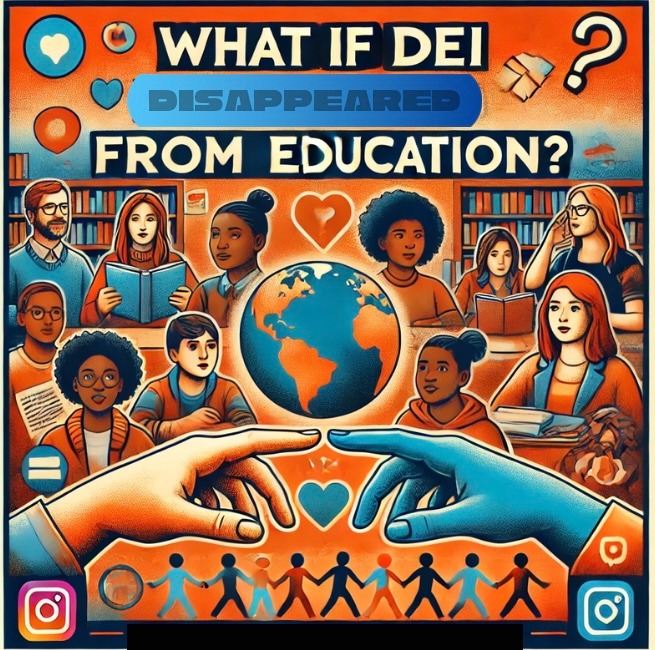We are re-launching during August, with some exciting material here and on our social media channels. Watch for more information, and visit our YouTube channel.
What would happen if DEI disappeared?
Heather Tolbut, Ed.D.
1/11/20252 min read


Diversity, Equity, and Inclusion (DEI) are not just catchwords that have become popular in education. These words (and ideas) are the foundation for schools where every student feels valued, seen, and supported. But what would happen if DEI disappeared from our schools and classrooms?
Without DEI, our education system would regress to an outdated model that prioritizes the success of a select few while marginalizing countless others. There would be a loss of access to resources and opportunities designed under DEI to help level the playing field for all students. The gaps in academic achievement, graduation rates, and college readiness would widen, leaving students--particularly those from minority and low-income communities--further behind.
Without diverse perspectives, history would be taught through a narrow lens, with the possibility of erasing the contributions of marginalized groups and perpetuating dangerous stereotypes. Students would also lose the ability to develop critical thinking skills through exposure to varied viewpoints and experiences.
Moreover, schools without DEI would fail to prepare students for the diverse world they will enter after graduation. We no longer live in a world where everything is black and white. Our world is grey--and green, orange, neon pink, etc.--you get where I'm going with this. Employers consistently emphasize the importance of cultural competence and the ability to work with diverse groups of individuals in a globalized workforce. If DEI were removed, students would miss out on the skills necessary to thrive in an interconnected society. They would lack the essential skills to understand and respect various cultural competencies.
On a personal level, the absence of DEI would foster environments where bias, discrimination, and inequity flourish unchecked. Our educational systems and our world as a whole would be set back 75 years in its thinking. Students who feel excluded are more likely to disengage, drop out, or struggle with mental health issues. Education should be a safe space where all students can learn and grow, but without DEI, that safety disappears.
DEI is not about giving unfair advantages, as many in the media would lead us to believe. DEI is about ensuring every student has the tools to succeed. Its disappearance would harm individual students and weaken our communities and our nation. Education is meant to be the great equalizer—but only if we actively work to make it so.
As educators and advocates, we must continue to champion DEI to build a future where every child has the opportunity to thrive. Let's imagine not a world without DEI but one where it is fully embraced, transforming lives and creating a better society for all.
